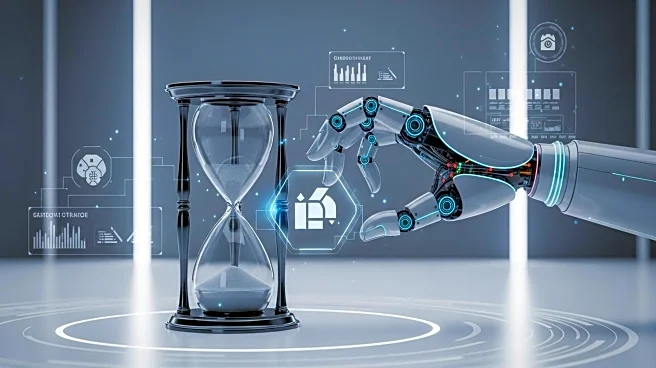What's Happening?
John Chambers, former CEO of Cisco Systems, has expressed concerns about the rapid advancements in artificial intelligence (AI) and its potential impact on the economy and job market. Chambers, who navigated the internet boom and bust of the late 1990s, sees parallels between the current AI surge and the internet era. He notes that AI is advancing at a much faster pace, with startups developing products in weeks rather than years. Chambers warns that this rapid development could lead to job losses faster than new jobs can be created, necessitating changes in education to prepare the workforce for new types of employment.
Why It's Important?
The implications of AI's rapid growth are significant for the U.S. economy and workforce. As AI technology evolves, it could lead to increased productivity but also job displacement, particularly in entry-level positions. This shift may require substantial investment in education and training to equip workers with the skills needed for new roles. Additionally, Chambers predicts that many Fortune 500 companies may struggle to adapt, potentially leading to their decline. The economic landscape could see a transformation, with successful companies expanding and others failing to keep pace with innovation.
What's Next?
Chambers suggests that companies need to invest in new areas to create jobs and adapt to the AI-driven economy. He anticipates that the next five years will be challenging, with significant changes in the business environment. Companies and leaders must learn to reinvent themselves to survive in this fast-paced market. The U.S. may also face increased competition from China, which Chambers views as a serious competitor in technology and economic power.
Beyond the Headlines
The ethical and cultural dimensions of AI's impact on society are profound. As AI technology becomes more integrated into daily life, questions about privacy, data security, and the ethical use of AI will become increasingly important. The potential for AI to exacerbate economic inequality and disrupt traditional industries poses challenges that require careful consideration and proactive policy measures.









